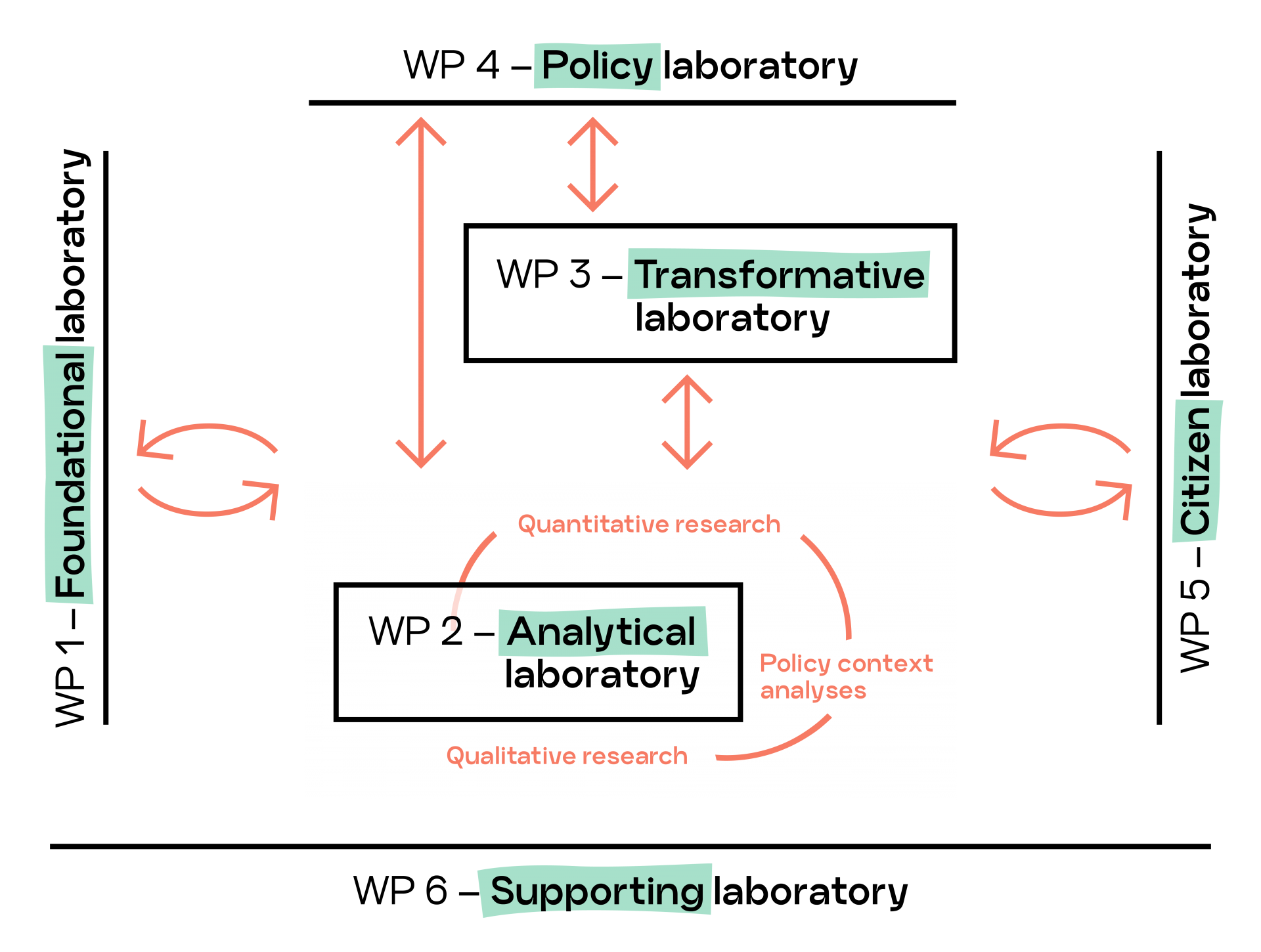- What is the nature of the relationship between the welfare state, public and social services, and policies aimed at tackling inequalities, on the one hand, and trust and participation of individuals in their democracy, on the other? Conceived broadly, thus not limited to electoral turn-out, but including all forms of voluntary activities by citizens that are aimed at bringing about political change.
- How do different kinds of inequalities influence political participation, democratic legitimacy, and the structure of democratic representation?
- How can more inclusive public and social services strengthen trust and democratic engagement of vulnerable citizens?
These main research questions and its overall ambition of enhancing democratic engagement of vulnerable citizens and reducing social and political inequalities are translated into 5 specific objectives, which are implemented in 5 Laboratories and 3 sub labs:
- Develop and operationalize a novel theoretical model based on the conceptualization of individuals as ‘receivers’, ‘doers’ and ‘judges’ (RDJ). This model will serve both as a yardstick to assess existing institutions and as a milestone to create transformative institutions (WP1:Foundational lab, WP9:Supporting lab).
- Advance innovative participatory action research methodology (PAHRCA) by involving mixed teams of academic researchers, representatives of civil society organizations and trade unions, professionals, and people from vulnerable groups in the co-construction of knowledge on inequality and democratic engagement (WP2: Analytical lab, WP6: Transformative lab and WP8: Citizenlab)
- Examine the relationship and the long-term impact of multidimensional inequalities on political trust and participation, with a focus on vulnerable groups, based on the RDJ framework (WP2: Analytical lab and its sub labs 3,4,5).
- Analyze the role of public and social services (including digitalization) in influencing levels of institutional trust and democratic participation and their potential in reducing inequalities and promoting democratic engagement (WP2: Analytical lab and its sub labs WP3,4,5 and WP6: Transformative lab).
- Develop, validate, provide and implement specific inclusive strategies, regulations, policies and transformative action pilots for strengthening democratic engagement and trust based on a proper consideration of the RDJ dimensions, especially with regard to enhancing aspirations and strengthening capability for voice by directly involving individuals from disadvantaged backgrounds throughout the project (WP6:Transformative lab, WP7: Policy lab, and WP8: Citizenlab).

